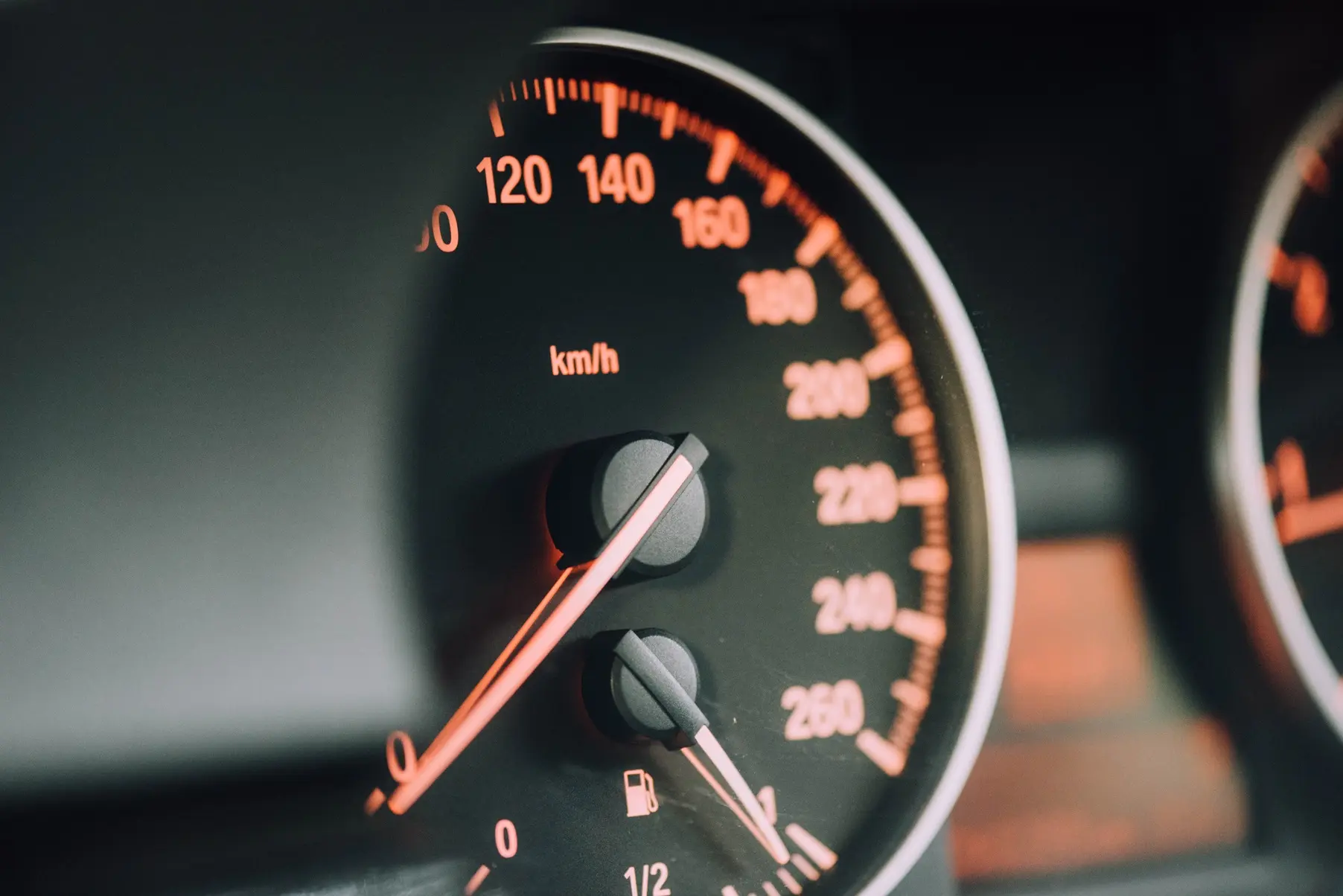Significance of a Car Registration Check
A car registration check is a comprehensive examination of a vehicle's registration details and history. It provides valuable information about the vehicle's past, including any accidents, damage, outstanding finance, or issues related to ownership and title.

Confidently Buy: The Significance of a Car Registration Check
Understanding Car Registration Checks
When it comes to purchasing a used vehicle or boat, conducting a car registration check is a vital step in the process. By understanding what a car registration check entails and its significance, buyers can make informed decisions and avoid potential pitfalls.
What is a Car Registration Check?
A car registration check is a comprehensive examination of a vehicle's registration details and history. It provides valuable information about the vehicle's past, including any accidents, damage, outstanding finance, or issues related to ownership and title. This check is typically done through a service such as VINNER who source data from the Personal Property Securities Register (PPSR) in Australia.
By conducting a car registration check, buyers gain access to crucial information that may not be readily apparent from a simple visual inspection. It helps to reveal the vehicle's true history, ensuring transparency and peace of mind in the purchasing process.
The Significance of a Car Registration Check
The significance of a car registration check cannot be overstated. It offers several key benefits that assist buyers in making informed decisions:
Revealing Past Accidents and Damage
A car registration check can uncover valuable information about the vehicle's accident history. It provides details about any reported accidents, including the details of the damage, repairs conducted, and if the vehicle has been written off. This information allows buyers to assess the extent of previous damage and gauge the overall condition of the vehicle. See Written Off Vehicle Codes for more information.
Uncovering Outstanding Finance
In some cases, a vehicle may have outstanding finance attached to it, meaning that it is still under a loan or has been used as collateral for a loan. A car registration check helps to identify any encumbrances or liens on the vehicle, ensuring that the buyer does not inherit any financial obligations.
Verifying Ownership and Title
A car registration check also verifies the ownership and title details of the vehicle. It confirms that the seller has the legal right to sell the vehicle and that there are no disputes or discrepancies regarding ownership. This information is crucial in preventing fraudulent transactions and ensuring a clear transfer of ownership.
By understanding the significance of a car registration check, buyers can protect themselves from potential fraud, hidden issues, or financial liabilities associated with the vehicle. It empowers them to make well-informed decisions based on factual information.
To conduct a car registration check in Australia, you can request a VINNER PPSR Report which accesses data from a government-operated database that provides details about a vehicle's registration, encumbrances, and other important information. Previously known as a REVS check, it is a resource available to buyers, providing information on the financial and legal history of a vehicle. For more information on these resources, refer to our articles on vin check, vehicle history report, and vehicle title check.
In the next sections, we will delve further into the benefits of a car registration check, how to interpret the results, and provide tips for a successful car purchase.
Benefits of a Car Registration Check
Performing a car registration check before purchasing a used vehicle is an essential step to ensure a confident and informed decision. This check provides valuable information about the vehicle's history, helping you uncover any potential issues or concerns. Let's explore some of the key benefits of conducting a car registration check.
Revealing Past Accidents and Damage
One of the primary benefits of a car registration check is the ability to uncover past accidents and damage that the vehicle may have experienced. This information is crucial in understanding the condition and reliability of the vehicle. By obtaining a car registration check, you can access historical data, including any reported accidents, repairs, or insurance claims. This knowledge empowers you to make an informed decision about the vehicle's suitability for purchase. For a more comprehensive understanding of the vehicle's history, you may also consider obtaining a vehicle history report.
Uncovering Outstanding Finance
Another crucial aspect of a car registration check is the identification of any outstanding finance associated with the vehicle. This information helps you determine whether the vehicle has any existing loans or financial obligations attached to it. Uncovering outstanding finance is vital, as purchasing a vehicle with undisclosed debt could result in complications and potential financial liabilities for the new owner. By conducting a car registration check, you can verify the financial status of the vehicle and proceed with confidence knowing that you are not inheriting any hidden financial burdens.
Verifying Ownership and Title
Verifying the ownership and title of a vehicle is an essential step in the car registration check process. This check ensures that the seller has legal authority to sell the vehicle and that there are no disputes or inconsistencies regarding ownership. By confirming the ownership and title, you can avoid potential scams, fraudulent transactions, or legal complications. It is important to conduct a thorough car registration check to ensure that the seller has the legal right to transfer ownership to you as the buyer. For a more comprehensive understanding of vehicle title verification, you may consider conducting a vehicle title check.
By conducting a car registration check, you gain valuable insights into the vehicle's history, including past accidents, outstanding finance, and ownership verification. Armed with this information, you can make an informed decision about the suitability and reliability of the vehicle. Remember to utilize reputable sources such as a VINNER PPSR REport in Australia, previously know as a REVS check for accurate and up-to-date information. Performing a car registration check is a vital step towards a successful car purchase, providing you with the confidence and peace of mind you need when investing in a used vehicle.
Conducting a Car Registration Check
When it comes to purchasing a used motor vehicle or boat in Australia, conducting a car registration check is an essential step to ensure a smooth and confident transaction. There are several resources available to perform these checks, including the VINNER PPSR Report with data sourced from PPSR (Personal Property Securities Register), previously known as and REVS (Register of Encumbered Vehicles). Let's explore these options and other resources for conducting a car registration check.
Using the PPSR in Australia
The VINNER PPSR report sources data from a government-run register that provides information about the history and encumbrances of personal property, including motor vehicles and boats. It allows potential buyers to verify important details such as ownership, title, and any encumbrances or debts associated with the vehicle or boat.
To conduct a car registration check with a VINNER PPSR Report, you will need the vehicle's identification number (VIN) or chassis number. This unique identifier helps retrieve accurate and up-to-date information from the register. By accessing a VINNER PPSR Report, you can obtain crucial details about the vehicle's history and make an informed decision. For more information on VIN checks, refer to our article on VIN checks.
Accessing REVS Check
The REVS check, also known as the Register of Encumbered Vehicles check, was a valuable resource for conducting a car registration check in Australia, however it has been replaced by the PPSR. It was similar to PPSR as it helped potential buyers uncover any encumbrances or financial obligations associated with the vehicle. You are no longer able to access the REVS check websites in each state, and it's important to note that the REVS check has now been incorporated into the PPSR, offering comprehensive insights into the vehicle's history and financial status.
Other Resources for Car Registration Checks
By utilizing these resources, you can gather a better understanding of the vehicle's history, and financial status. It's important to explore multiple avenues and cross-reference the information obtained to ensure accuracy and reliability. For more information on additional checks and reports, refer to our article on car history checks and vehicle title checks.
Conducting a car registration check is a crucial step in the vehicle purchasing process. By using resources like the a VINNER PPSR Report and other relevant checks, you can confidently assess the vehicle's history and financial status. Remember to thoroughly review the results, look out for any red flags, and seek professional help if needed. With these checks in place, you can approach your car purchase with peace of mind and make an informed decision.
Interpreting the Results
Once you have conducted a car registration check, it is crucial to correctly interpret the results to make an informed decision about your vehicle purchase. Understanding the report, identifying red flags, and knowing when to seek professional help are all essential steps in this process.
Understanding the Report
The car registration check report provides valuable information about the vehicle's history and helps you assess its condition and legality. The report may include details such as:
- Vehicle identification number (VIN)
- Make, model, and year of the vehicle
- Title information
- Record of accidents, damages, or insurance claims
- Outstanding finance or loans against the vehicle
- Whether the vehicle has been written off or stolen
- Odometer readings and discrepancies
Carefully review each section of the report to ensure you have a comprehensive understanding of the vehicle's background. If any information seems unclear or requires further clarification, consider seeking assistance from a professional. For more information on VIN checks and their significance, refer to our article on VIN checks.
Red Flags to Look Out For
During the interpretation of the car registration check report, keep an eye out for any red flags that may indicate potential issues with the vehicle. Some common red flags include:
-
Accident or Damage History: Multiple records of accidents, significant repairs, or extensive damage could suggest underlying problems with the vehicle's structural integrity or reliability.
-
Outstanding Finance: If the report reveals outstanding finance against the vehicle, it implies that the previous owner used the vehicle as collateral for a loan. Purchasing a vehicle with outstanding finance may result in legal complications or repossession.
-
Title Discrepancies: Any inconsistencies in the ownership and title information, such as multiple owners within a short period or title branding, should be carefully evaluated. These discrepancies could indicate hidden issues with the vehicle's history.
-
Stolen or Written-Off Status: If the car registration check report indicates that the vehicle has been reported as stolen or written off, it is advisable to reconsider the purchase. These status flags typically indicate significant concerns regarding the vehicle's condition and legal status.
-
Odometer Tampering: Inaccurate or inconsistent odometer readings may suggest tampering, potentially indicating a higher mileage than what is stated. This could impact the overall value and reliability of the vehicle.
Seeking Professional Help
Interpreting a car registration check report can be complex, especially if you are unfamiliar with the nuances of vehicle history. If you encounter any red flags, have concerns about the report, or simply want additional assurance, it is recommended to seek professional help.
Automotive professionals, such as mechanics or vehicle inspectors, have expertise in assessing vehicles and can provide expert opinions on the report's findings. They can help you understand the potential ramifications of the information uncovered and guide you in making an informed decision.
Remember, a car registration check report is a valuable tool, but it is not the sole determinant of a vehicle's worthiness. Combine the information from the report with a thorough vehicle inspection and research to gain a comprehensive understanding of the vehicle's condition and history. For more information on vehicle history reports and their significance, refer to our article on vehicle history reports.
By interpreting the results of a car registration check, you can identify any potential issues or red flags associated with the vehicle. Armed with this knowledge, you can make a confident and informed decision when purchasing a used vehicle.
Tips for a Successful Car Purchase
When it comes to purchasing a used car, conducting thorough research and taking necessary precautions is essential. By following these tips, you can increase your chances of making a successful car purchase.
Researching the Vehicle's History
Before finalizing a car purchase, it's crucial to research the vehicle's history. This includes obtaining a comprehensive vehicle history report, also known as a car history check. This report provides important information about the vehicle's past, including any recorded accidents, repairs, or other significant events. By reviewing the vehicle's history, you can gain insights into its overall condition and make an informed decision.
In addition to a car history check, consider conducting a VIN check. The vehicle identification number (VIN) is a unique code assigned to every vehicle, and it can provide additional details such as any outstanding recalls. This information can give you a more comprehensive understanding of the vehicle's background.
Performing a Thorough Inspection
Inspecting the car thoroughly is crucial to ensure that you are aware of its current condition. It's recommended to perform both a visual inspection and a test drive. During the visual inspection, pay attention to the exterior and interior of the car, looking for any signs of damage, wear, or inconsistencies. Check for any mismatched paint or panels, as these could indicate previous repairs.
During the test drive, assess the car's performance and handling. Listen for any unusual noises, check the responsiveness of the brakes, and test all the vehicle's features. If you are unsure about how to conduct a comprehensive inspection, consider seeking the assistance of a professional mechanic. They can provide an unbiased assessment of the vehicle's condition and identify any potential issues.
Negotiating with Confidence
Armed with knowledge about the vehicle's history and condition, you can negotiate with confidence. Use the information obtained from the car history check and inspection to determine a fair price for the vehicle. Be prepared to discuss any identified issues and consider the potential cost of necessary repairs or maintenance. This information can be valuable when negotiating a price that reflects the true value of the car.
Remember, purchasing a used car is a negotiation process. Be willing to walk away if the terms are not favorable or if you have concerns about the vehicle's history or condition. There are plenty of options available, and it's important to find a car that meets your needs and provides peace of mind.
By researching the vehicle's history, performing a thorough inspection, and negotiating with confidence, you can increase your chances of a successful car purchase. Taking these steps will help you make an informed decision and choose a used car that suits your needs and budget.
More Information
See our docs page for more information, or Contact Us if you have any questions.





